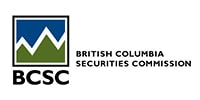There are a number of options for your company to raise money equity investment without going public. But, before going down this road, it is important to know the BC laws that apply to any company or other entity that raises money from investors.
What are Securities Laws?
If someone is looking to invest in your business, with an expectation to make a profit, what the investor receives in return for that investment is a security. This could include shares in your business.
There are two basic requirements of British Columbia’s securities legislation: registration and disclosure.
Registration Requirements
If you are in the business of selling securities, you must be registered (licensed) with the British Columbia Securities Commission (the Commission). However, if you’re looking to sell securities in your own business only, this is probably not required. If you’re unsure, whether this registration applies to you or not, contact the Commission for clarification.
Disclosure Requirements
As a rule of thumb, if you are selling your own securities (shares in your company), you are required to file a comprehensive disclosure document called a prospectus with the Commission. On filing the prospectus, your business will become a public company.
However, there are some exemptions to this rule. For example, if you are issuing securities
- As a private issuer,
- To employees, directors, officers and consultants,
- To family, friends, and business associates,
- Under a minimum amount,
- To an accredited investor, or
- Under an offering memorandum.
Exemptions from Regular Disclosure Requirements
1) Private Issuer
You can be classified as a private issuer if
- You have no more than 50 shareholders (excluding employees), and
- Your company has only sold securities to qualified purchasers (explanation below).
- Directors, officers, employees, or control persons of the company
- Family members (spouse, parent, child, etc) of directors, executive officers, or control persons
- Close personal friends and close business associates of directors, executive officers, or control persons (see discussion below)
- Accredited investors (see note below)
- Current security holders.
Note: As long as your company meets the definition of a private issuer,
1. your shareholders can resell to one of the qualified purchasers in the list above, provided the directors of your company consent to any resale or transfer of shares, and
2) Employee, Director, Officer, and Consultant
Even if your company is not a private issuer (you have over 50 shareholders or you have sold to investors who were not qualified purchasers), you can still sell securities to employees, executive officers, directors, or consultants of your company. If you use this exemption, you are not required to file a report with the Commission.
3) Other Exemptions
If you are looking to raise capital under other exemptions (for example family, friends and business associates; minimum amount; accredited investor; offering memorandum) you are required to file a report with the Commission within 10 days of the company receiving money from investors. If an investor wants to sell their shares, after they have been issued, they are required to sell under an exemption, or wait until your company has been a public company for at least 4 months.
i) Family, Friends and Business Associates
Investors under this exemption can include members of management and their family members.
Investors under this exemption can also include:
- A close friend or family member: someone who has known your senior management team (director, senior officer, or control person) for a sufficient period of time and can assess your capabilities and trustworthiness.
- A close business associate: someone who has had sufficient prior business dealings with your business, to be able to assess your capabilities and trustworthiness.
ii) Minimum Amount
Your company can sell securities to a purchaser who is willing to buy at least $150,000 worth of your company’s securities and pays cash.
iii) Accredited Investors
Your company can also sell securities to individuals or companies that meet the definition of accredited investor. This includes
- an individual who owns financial assets, such as cash and securities, of $1,000,000. Note: a house is not a financial asset,
- an individual who has net assets of $5,000,000,
- an individual whose net income exceeds $200,000 in each of the two most recent years, and
- a company with net assets of $5,000,000.
iv) Offering Memorandum
Under this exemption, you can sell securities to anyone. To do this, you must prepare a disclosure document called an “offering memorandum”. An offering memorandum includes information about
- the company and its business,
- how the proceeds will be used,
- the associated risks,
- the rights available to purchasers, and
- the financial statements of the business.
Note: You are required to file this disclosure document with the Commission within 10 days of the first sale.
Before selling any securities under this exemption, you must obtain a signed risk acknowledgement in the required form from each investor. In this document, the purchaser acknowledges the risk of investing in your company, the limited ability to sell, and acknowledges that the purchaser could lose all the money invested.
If your company uses this exemption, the money raised must be held in trust for two days, so that it is available to return to a purchaser that exercises the right to cancel.
For More Information
As you will see from this article, seeking investment for your business is about much more than perfecting your pitch and accepting money. There are many legal issues to consider. It is therefore advisable to consult a lawyer before looking for investment to understand all the requirements.
You can also contact the BC Securities Commission at 1-800-373-6393, email to [email protected], or go on line and check out the BCSC website.
Here to Help
No matter what stage of business, or what problem you face, Small Business BC offers a range of seminars and one-on-one advisory sessions to suit any business.
